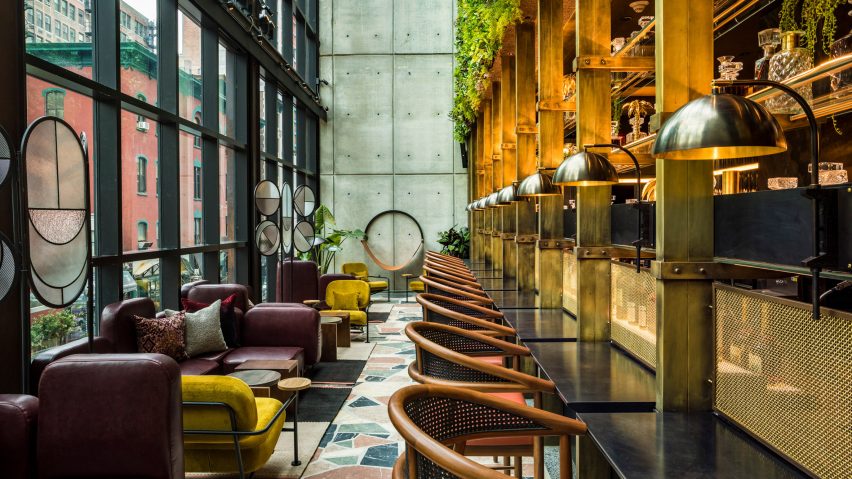
Rockwell Group and Yabu Pushelberg team up for Moxy Chelsea hotel
Yabu Pushelberg and Rockwell Group have created a mix of floral and zany bars, restaurants, workspaces, and space-saving bedrooms inside this New York hotel.
Developed by Lightstone, the 349-room hotel is the latest outpost of Moxy – a subsidiary of hospitality company Marriott that aims to be affordable without compromising on style.
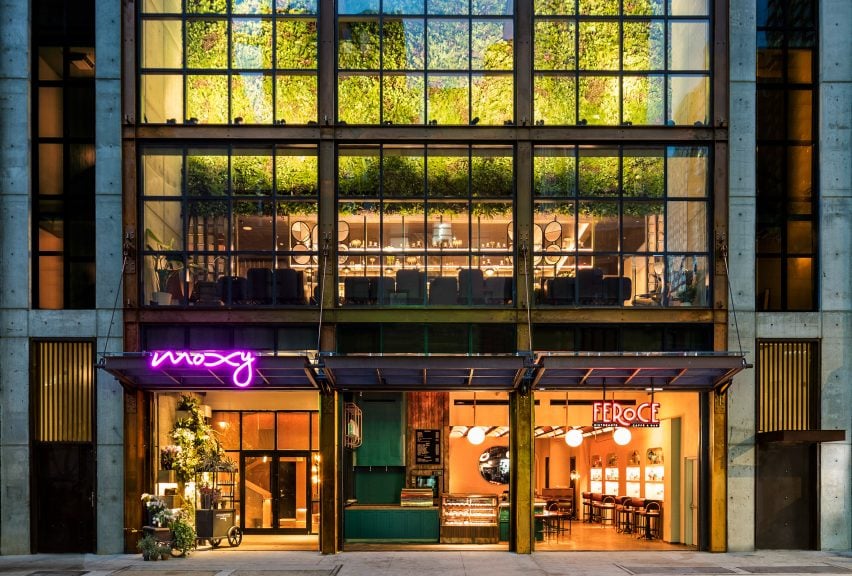
Following on from the Moxy in Times Square, Yabu Pushelberg and Rockwell Group teamed up to designed the interiors for the location in New York's Chelsea neighbourhood.
Design firm Stonehill Taylor completed the architectural design of the 35-storey building with Corten steel columns and huge windows.
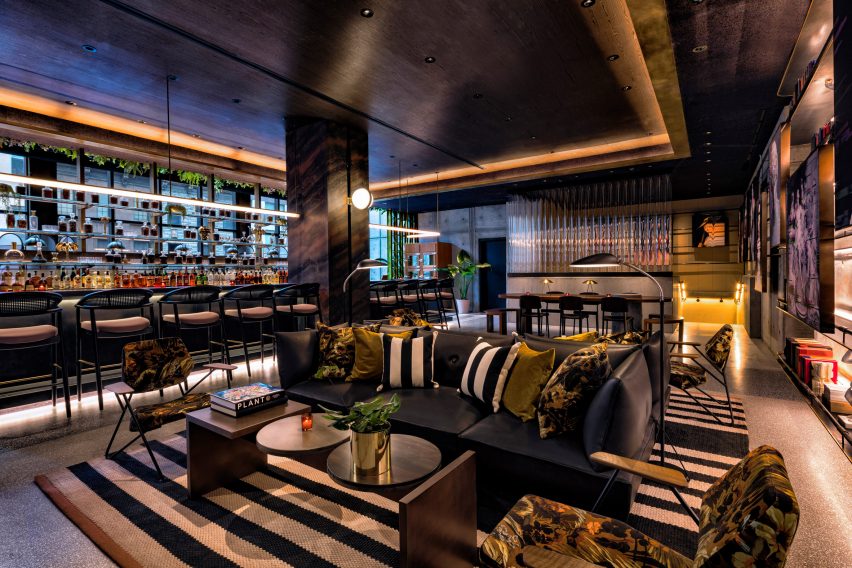
Moxy NYC Chelsea is located at 105 W 28th Street in the midst of the Chelsea's bustling Flower Market – which provided the main influence for the project.
A small florist run by Putnam & Putnam is located at the front of the hotel, alongside an Italian patisserie. Both are fronted with huge glass doors that swing up to open them onto the street.
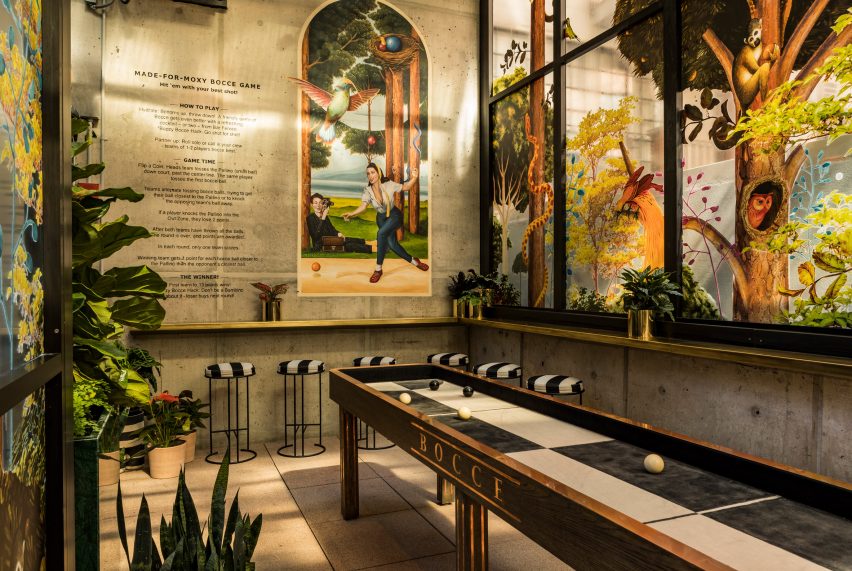
Guests are able to check themselves in at the Yabu Pushelberg-designed reception behind the flower store – forming part of the Moxy's stripped-back approach to hospitality. Desks hang down from the ceiling while neon signs flash slogans related to flowers.
A curved concrete stair imprinted with the markings of wooden boards leads from the ground floor to the first-floor lobby area, designed by Rockwell Group.
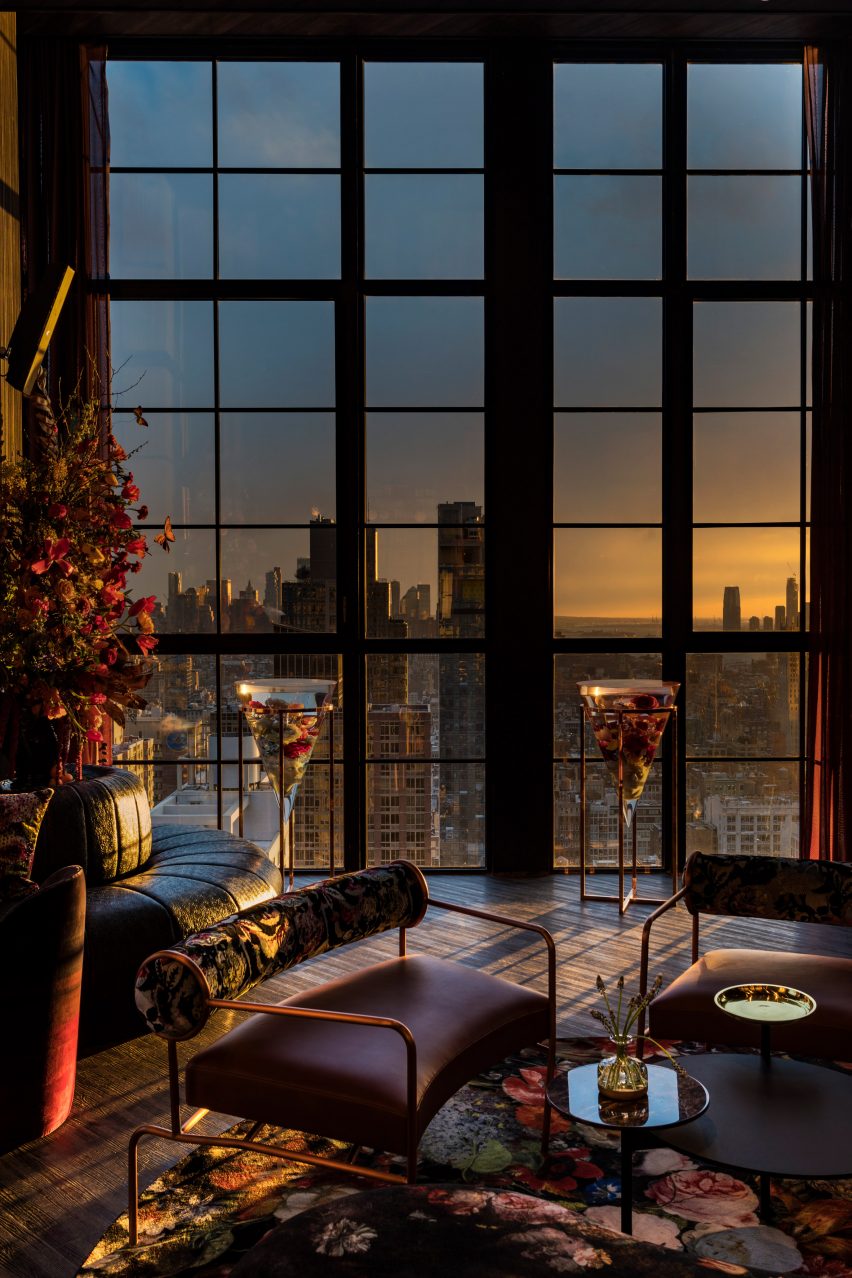
The main area on this level is designed to function as a co-working-space-cum-bar. At night, a regular DJ turns up to play music.
Tucked behind the bar is a three-storey-high glass conservatory that offers views to the Flower Market below. Greenery runs all the way up the wall facing the glass.
"You have three-storey glass that puts your mind to the flower market – you can see all the activity on the street," Lightstone president Mitchell Hochberg told Dezeen. "Then you have the green wall that takes it from the outside."
Oversized terrazzo flooring, a huge swing and booths for individual working are among the details that Rockwell Group designed for this space.
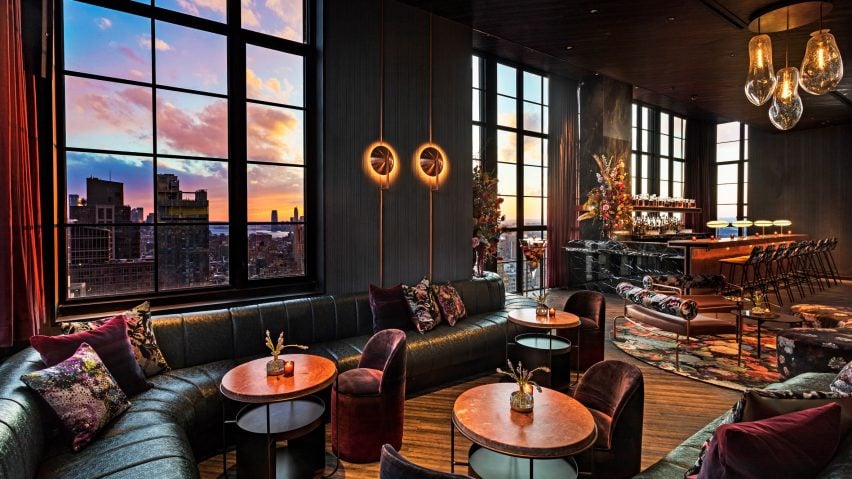
The elevators separate this side of the first floor from the other half, where the design team has created an adaptable meeting space and lounge area that can be "deconstructed in five minutes".
Private rooms comprise sliding glass doors that can be drawn to enclose private desks and wooden tables that fold out to form larger desks for meetings. These details are intended as a development of the workspaces in the Moxy Times Square.
"We went to Rockwell and said we'd like to recreate the studio quality part two," Hochberg said.
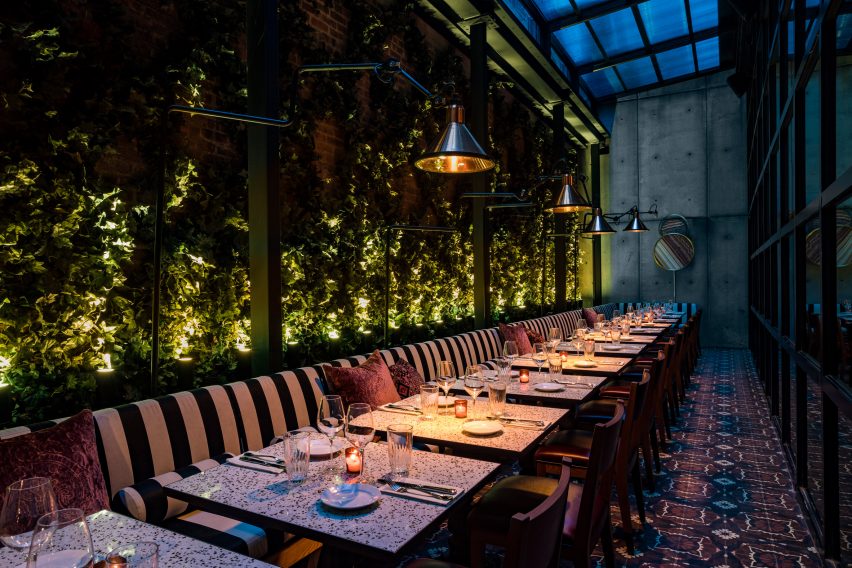
Towards the back of the floor is another glazed social space, flanked on one side by a terra cotta pizza oven and a table designed to host a "bocce drinking game". A mural covers over the glass walls to disguise the building behind this room.
"It creates an atmosphere here which is really beautiful and it doesn't just feel like an outdoor terrace," Hochberg added.
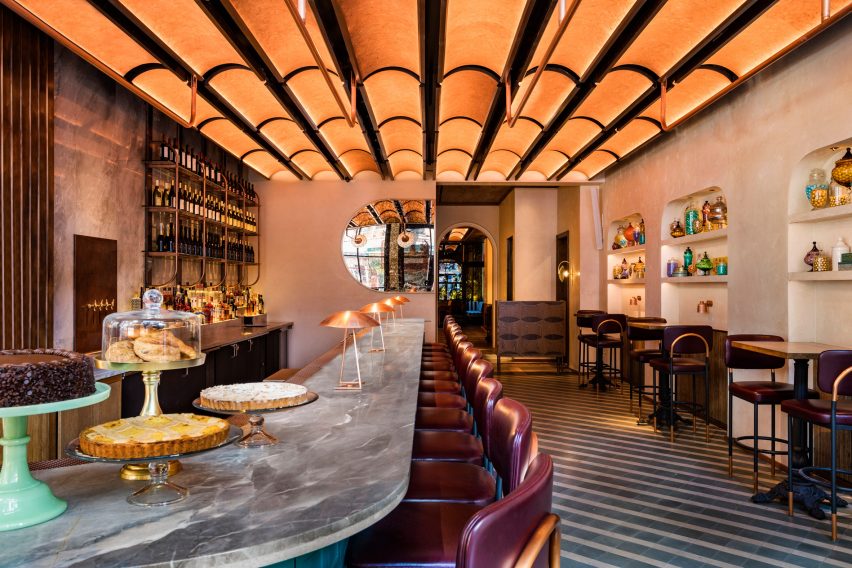
Rockwell Group topped the hotel with The Fleur Room nightclub. Following on from the theme of the ground floor areas, it features glass walls that can be opened up to 360-degree views spanning the Statue of Liberty to the Empire State Building.
Other amenities at the hotel include a cafe, bakery and Ferroce restaurant on the ground floor.
Run by TAO Group and Francesco Panella, these areas are designed to draw on timeworn eateries found in Rome, including details like weathered plaster walls, wooden and leather tables, flowery textiles and plush curtains.
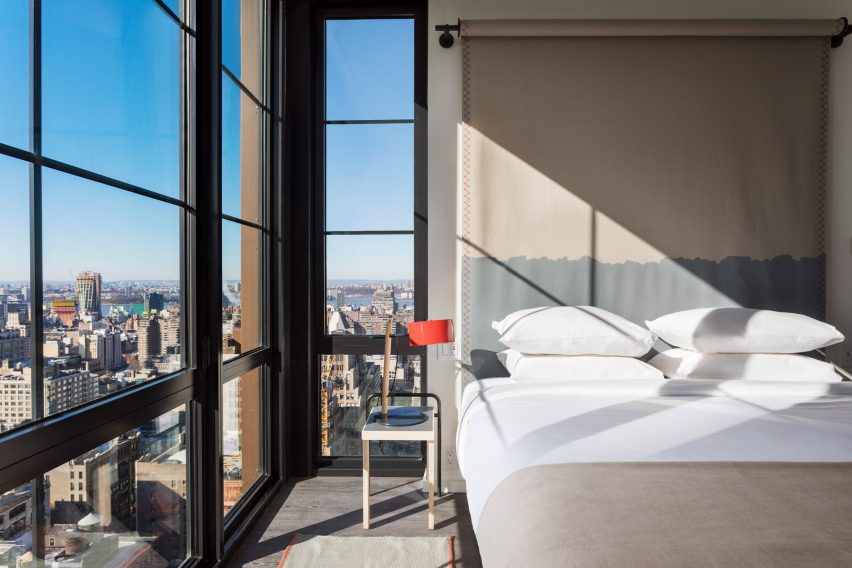
The restaurant encompasses a private dining room, which is covered in custom murals, and a slim outdoor space for a more intimate eating experience.
While Rockwell Group focused on the exuberance of the public spaces, Yabu Pushelberg was tasked to create luxury, efficient guestrooms in compact spaces.
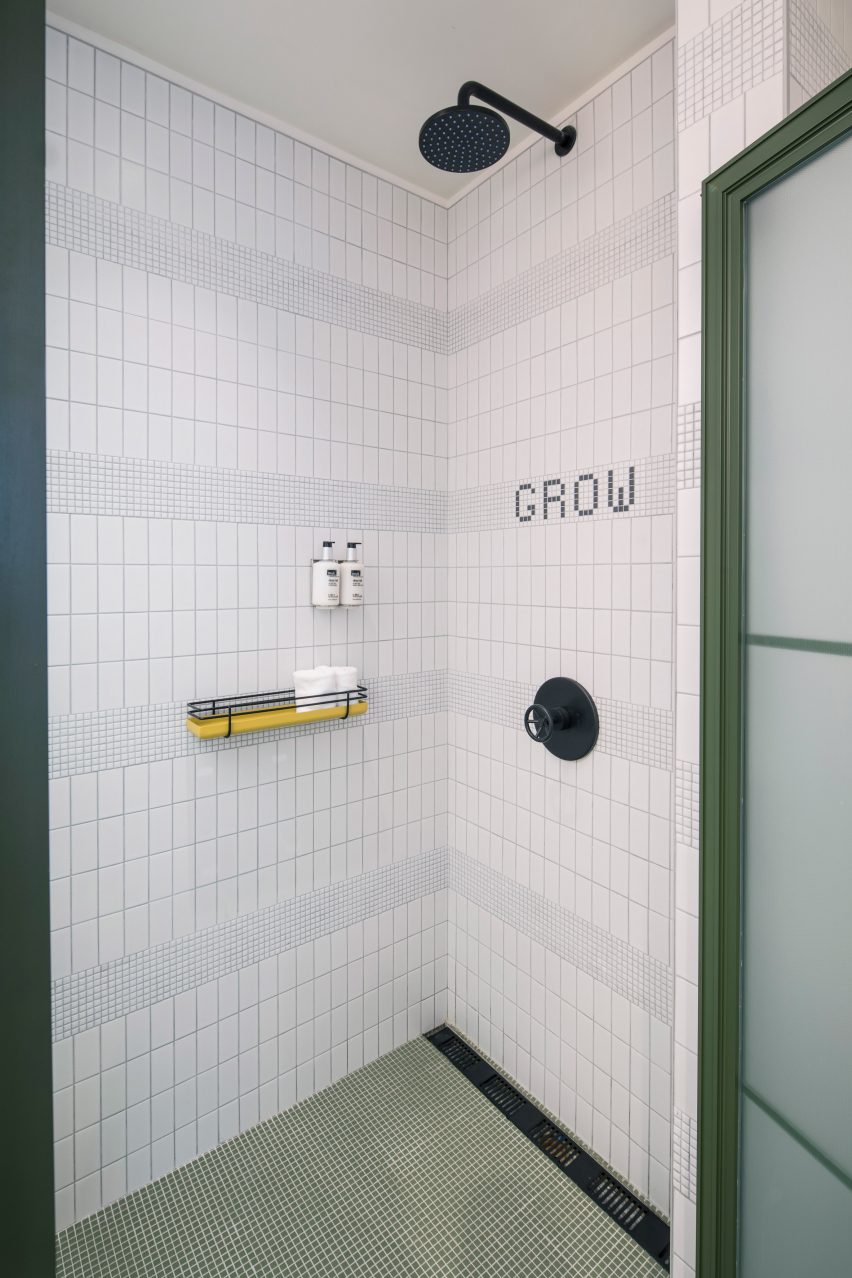
As with the Moxy Times Square, the firm's design uses custom furnishings to make the most of the limited space. Each room features built-in wooden beds, which range from king, queen, double and bunk beds depending on the layout.
Chairs and tables can be folded away and hung from wooden wall pegs, which are also used to hang clothes in lieu of cabinets. Additional storage drawers are slotted underneath the beds.
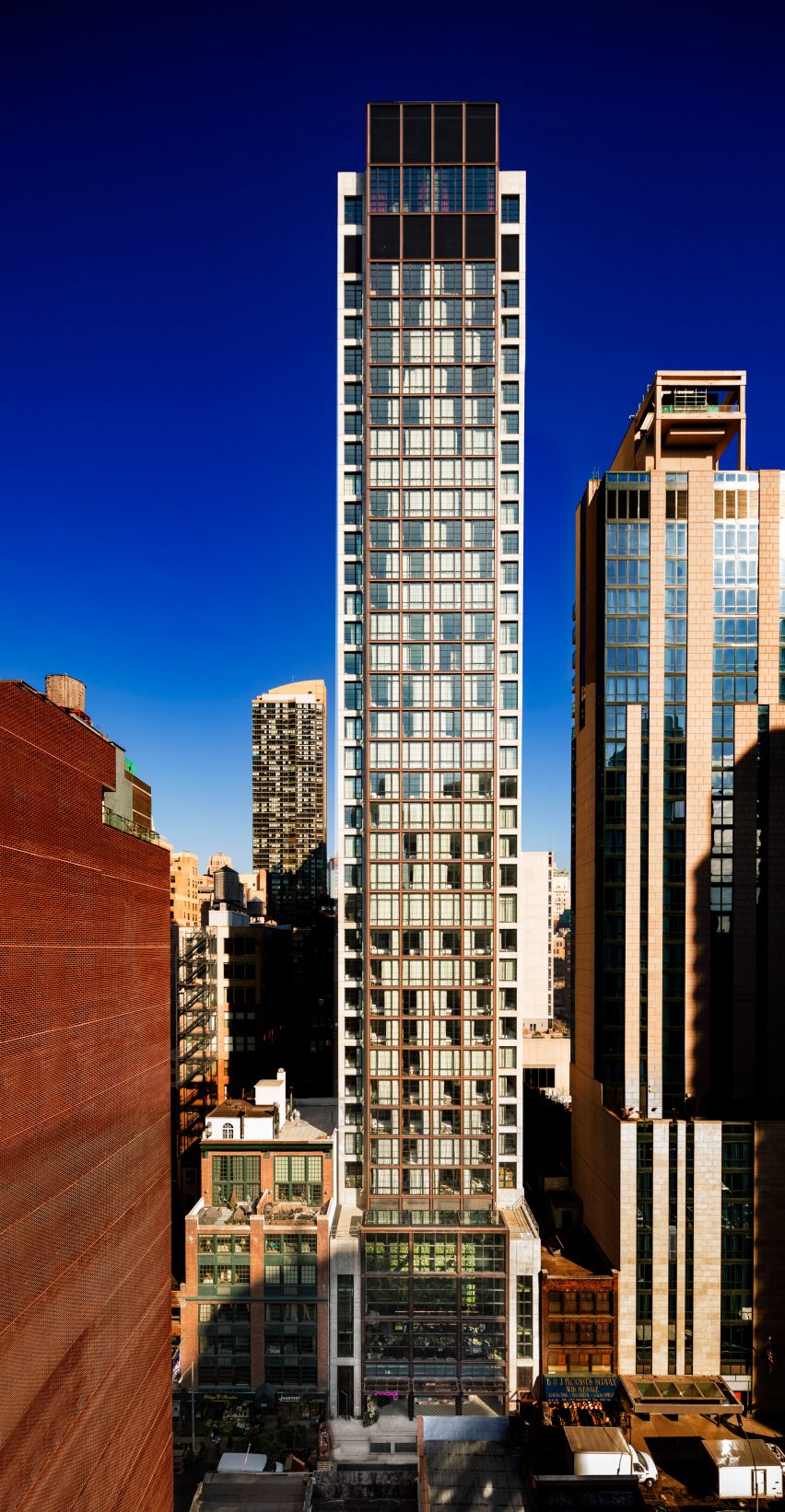
The bathroom layout is also unconventional to save space. Washbasins, which are made out of stone sourced from France, are moved outside of the bathrooms. The showers and toilets are housed in a single volume, partitioned by translucent glass.
Striped drapes cover large windows, while other details include wax-dipped canvas headboards that drape down over the wall.
The Moxy is among a host of new hotels that are responding to the changing habits of travellers. Others in New York include the recently opened Public hotel, which features a similar selection of stripped-back guest rooms, and the Arlo Hudson Square, which aims to attract "urban explorers".